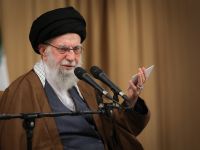Banking and Currency
Foreign Currency
The Qatari Riyal is freely convertible on world financial markets. Currency exchange is regulated by Law No. 4/1982, which controls and sets licensing. In June 1980, the Riyal was pegged to the U.S. dollar at a rate of US$1=QR 3.64, which remains unaltered. The Riyal maintains a floating rate against all other currencies.
Restrictions exist on activities dealing with currency exchange, traveler's checks, precious metals and personal transfers.
Banking
Central Bank
The Qatar Central Bank (QCB) was established in 1973 as the Qatar Monetary Agency. In addition to supervising, coordinating and controlling the banking sector, the QCB also regulates insurance and controls the circulation of currency. The QCB sets interest rates for deposits and credit facilities maintained in Qatari Riyals (QR). The Central Bank adheres to conservative policies aimed at maintaining steady economic growth and leading to a stable banking sector.
Commercial Banks
There are 14 commercial banks, with a total of 39 branches, operating in Qatar. These include two Islamic banks that were licensed in recent years. Six of the banks are Qatari-owned, two are Arab, and six are foreign banks.
A banking license may be issued to a banking entity whose paid-up capital is at least QR 5 million. If the banking entity is a foreign subsidiary, it must maintain that amount of retained or operational capital in Qatar. Banking entities are required to retain a reserve of 100 percent of their paid-up or operational capital in Qatar. Deposits and credit facilities in foreign currency are subject to variable interest rates determined by the banks in accordance with prevailing market terms.
Credit facilities are provided to local and foreign investors within the framework of standard international banking procedures. QCB guidelines require banks operating in Qatar to grant priority to Qataris and to public development projects in their financing operations. Banks operating in Qatar are also discouraged against foreign stock market operations.
Intellectual Property
Qatar is not a member of the World Intellectual Property Organization (WIPO) nor does it belong to the Paris Convention for Protection of Intellectual Property. Within Qatar, therefore, owners of trademarks and copyrights and holders of patents are dependent on Qatar's own national laws and regulations for protection.
Patents and Designs
In the early 1990s, Qatar adopted a Patent Law that was drafted by the General Secretariat of the Gulf Cooperation Council (GCC) in Riyadh, Saudi Arabia. This law has not, however, been enforced. Caveats and cautionary notices may be published in both the Arabic and English language press and appropriate periodicals. While the publication of a cautionary notice does not affect a registration of the invention or design, it is intended to put the public on notice of the interests of its owner and to prevent potential infringement.
Trademarks
Law No. 3 of 1978, Administrative Decision No. 47 of 1986, and Ministerial Decree No. 17 of 1987, govern the Qatari trademark regime. Names of distinctive features, signatures, words, letters, numbers, designs, pictures, symbols, stamps, seals, vignettes and any other sign or combination of signs having a disjunctive character may be registered as a mark. Marks without distinctive features, expressions, designs and signs of immoral character or contrary to public policy, portraits or emblems of individuals without their permission and marks likely to deceive the public are among the things that cannot be registered as a mark.
With the exception of the alcoholic goods of Class 33, Qatar adopted all 42 classes of the international classification system. Application and registered marks are published in the Trademark Gazette. Opposition may be filed within four months from the date of publication. Upon registration, the mark is protected for ten years, and the protection is renewable for similar periods. The rights confer exclusive ownership of the mark. Lack of use of a mark in Qatar for five consecutive years is a ground for challenge. Violations of the law may give rise to criminal penalties.
Copyright
The Law for the Protection of Copyright No. 25 of 1995 became effective on January 23, 1996. Under this law, authors of literary, artistic, and scientific works may benefit from protection regardless of the work's value, kind, purpose or media. Protection covers works expressed in writing, sound, drawing, image or motion, creative titles and computer software. Also protected by the law are those who obtain the permission of the original author to translate the work or those who summarize, modify, explain or comment on the work to produce a new form of the work without infringing on the rights of the original authors. The protection extends to the rights of the author and the right of those who translate a work into a foreign language for three years from the date of publication.
Protection is granted to Qatari authors whose works are published inside and outside the country, the works of non-Qatari authors published in Qatar for the first time and the works of authors of any other foreign country that treats Qatari authors on a reciprocal basis. A literary work may be licensed for publication, display or circulation upon meeting the following legal stipulations:
(1) The work must be accompanied by a certificate of origin showing the author's name or the name of the person who surrenders the right of usage; (2) The work must be accompanied by a permit from the supplier or owner for display or circulation, showing the geographic areas where the display or circulation, showing the geographic areas where the display and circulation is licensed; (3) The work must be accompanied by a supplier's certificate showing that the publishing rights are covered whether through paying the charges of putting the work to use by the public or by making copies of the work for distribution.
Once granted copyright protection, the author is entitled to attribute the work to himself and to apply his name to all the copies produced from it whenever the work is put to public use, except when the work is mentioned accidentally on a radio or television presentation of current events. This right is inalienable and is not abolished with the lapse of time. The author also has the right to decide on publishing the work, recording or displaying it and to determine the relevant terms. The author has the right to use his work, on condition that the right was not surrendered to another person. Yet, it is forbidden to use any work through transferring it to the public in Qatar except by written, authenticated permission from the author or the author's representative or successor in the event of death.
The author has a vested right to modify or to translate a work into another language; heirs, too, can exercise this right. Only the author has the right to publish his letters and to transfer the financial rights that the work entails, according to the provisions of the law, to another. The author has the right to defend against any violation of his rights and has the right to prevent any elimination, addition, change or deformation of the work.
Even following the death of the author, the rights provided for in the law are all or partly alienable, whether through inheritance or by law. The law stipulates that in cases of joint production of works where it becomes impossible to determine the exact share of each one in the joint work, all participants will be considered equal partners in its ownership, unless otherwise agreed.
Qatar's Ministry of Information and Culture established a Censorship Bureau to enforce Intellectual Property Law No. 25. The abolishment of the Ministry of Information and Culture in October 1996 has prevented proper implementation of this law. The Censorship Bureau, however, has not been abolished. In March 1997, more than 3,000 unauthorized videotapes were voluntarily destroyed by one of Qatar's largest video store in the presence of a representative from the censorship bureau. This incident demonstrates that the government is serious about enforcing the copyright law.
Taxation
Qatar Income Tax Law No. 11/1993 became effective as of January 1, 1993. It imposes income tax on the taxpayer (natural persons and corporate bodies) arising from activities in Qatar, including profits from any contract executed in Qatar, profits realized from the sale of any asset of an establishment, agency commissions (regardless of whether the contract with respect to which a commission is due is executed inside or outside of Qatar), consultation fees, amounts from the sale, rent or concession of intellectual property rights, bad debts collected by the taxpayer, and net profits upon dissolution of a company.
Taxable income is determined after allowable deductions are made for interest payments, rentals, salaries and bonuses, taxes and fees (other than income tax), depreciation, losses from the sale of assets and humanitarian or scientific donations.
Revenues relating to projects in Qatar, even if executed outside of Qatar, are declared for Qatari tax purposes. Evidence that the work was implemented outside of Qatar is necessary to avoid tax liability with respect to the profits of the project.
Salaries, wages, personal bank interest and other forms of personal income are not subject to tax.
Tax is calculated on a progressive scale rising to a maximum rate of 35 percent on taxable income above QR 5 million. The tax rates are as follows:
Amount of Income Tax Rate
Less than QR 100,000 exempt
QR 100,001 to QR 500,000 10%
QR 500,001 to QR 1,000,000 15%
QR 1,000,001 to QR 1,500,000 20%
QR 1,500,001 to QR 2,500,000 25%
QR 2,500,001 to QR 5,000,000 30%
QR 5,000,001 and above 35%
Qatar's corporate income tax law is applicable to foreign firms operating in the Emirate, in addition to foreign equity participation in Qatari enterprises. While it is unusual for foreign equity in a Qatari business concern to be exempt from corporate income tax provisions, wholly owned foreign firms operating in Qatar may receive tax holidays.
In order to receive an exemption from paying corporate income tax of up to 35 percent of net income, a foreign firm must first negotiate this issue with the relevant government department prior to signing a contract. If it is in the government's interest, the department will raise the matter with a country's higher authorities and endorse a request. However, tax exemptions can only be granted by Emiri decree.
Regarding Law No. 11 for the year 1993, Qatari joint stock companies are not exempt from income tax provisions. The government has, however, been issuing decrees every three years that exempt Qatari joint stock companies from paying income tax. The most recent exemption was issued in 1995.
© 2000 Mena Report (www.menareport.com)








